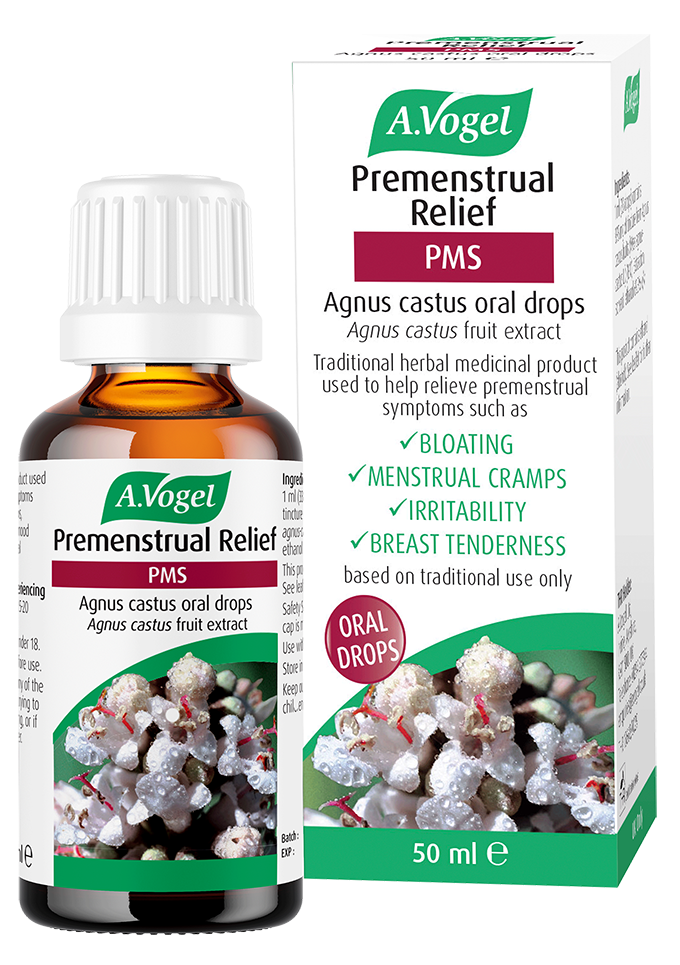An introduction to weight gain and PMS
Weight gain is a common symptom of PMS (premenstrual syndrome), occurring in the week or two before menstruation.
Up to a few pounds may be gained during this time, but this extra weight is shed as soon as menstrual bleeding begins. This symptom is experienced by most menstruating women, whether or not troubled by PMS. It may also be associated with feelings of being bloated.
Although common, PMS weight gain can be an annoying and upsetting symptom, particularly if it is problematic enough to mean that your clothes feel too tight for a week or two each month.
Why does PMS cause weight gain?
As with bloating, weight gain during PMS is mainly due to the body retaining more water. The reason has been put down to fluctuating levels of oestrogen and progesterone between ovulation and menstruation – a period lasting approximately two weeks known as the luteal phase of the menstrual cycle.
In addition, some women can find it more difficult to achieve regular bowel movements during this time and retaining faeces will also add to the increase in weight and not help symptoms of bloating already present.
One other possible cause of weight gain with PMS is an increase in food cravings. Hormonal changes during this time of the month send messages to the brain asking for an increased intake of sugar. This explains the phenomenon of chocolate cravings just before your period. These extra cravings for food contribute further to weight gain.
What can I do to help myself?
As the most influential factor of weight gain during PMS is fluid retention, focus on this as the first step.
- Cut back on your salt intake as sodium causes the body to retain fluid
- Drink plenty of water. Although this seems counterintuitive, the more water you drink, the more your kidneys will work to pass water. If you struggle to drink plain water, adding a slice of lemon or lime will not only cheer the drink up, but has also been shown to reduce fluid retention.
Foods which are high in potassium, such as bananas, can help reduce digestive bloating. Additionally yoghurt which is high in probiotics aids digestive system function.
Increasing your intake of magnesium may help with this troublesome symptom. The British diet tends to leave us somewhat lacking in the mineral, and so if necessary, it may be worth taking a magnesium supplement.
Are there herbal remedies to help me?
The first thing you should consider is to work at the root of your problem – this is especially so if weight gain is one of a number of PMS symptoms you experience each month.
Agnus castus, also known as the Chaste Tree or Chasteberry, has been used for many years to treat a range of PMS symptoms including bloating, menstrual cramps, low mood and anxiety. If you are already taking oral contraceptives or HRT consult a doctor before taking Agnus castus as it may not be suitable for you.
If weight gain is your main or only symptom, you might wish to consider using a chromium supplement. Chromium is an essential trace mineral which is important in stabilising blood sugar levels, reducing cravings for sugary foods or carbohydrates. It has also been shown to be effective in lowering cholesterol and aiding fat absorption.
What about conventional medicines?
Your doctor may suggest treatment with diuretics to help with your weight gain. However, this is not always the best option as they can strip your body of important vitamins and minerals. They are likely to be reluctant to prescribe appetite suppressants or fat absorption inhibitors as this is not really the cause of your weight gain.
Alternatively, hormonal treatment with prescribed medication such as the oral contraceptive pill may be suggested. This works by inhibiting ovulation and controlling the menstrual cycle.
My PMS Journal
Keep track of your symptoms with our PMS Diary to identify patterns & help discover ways to minimise them.









